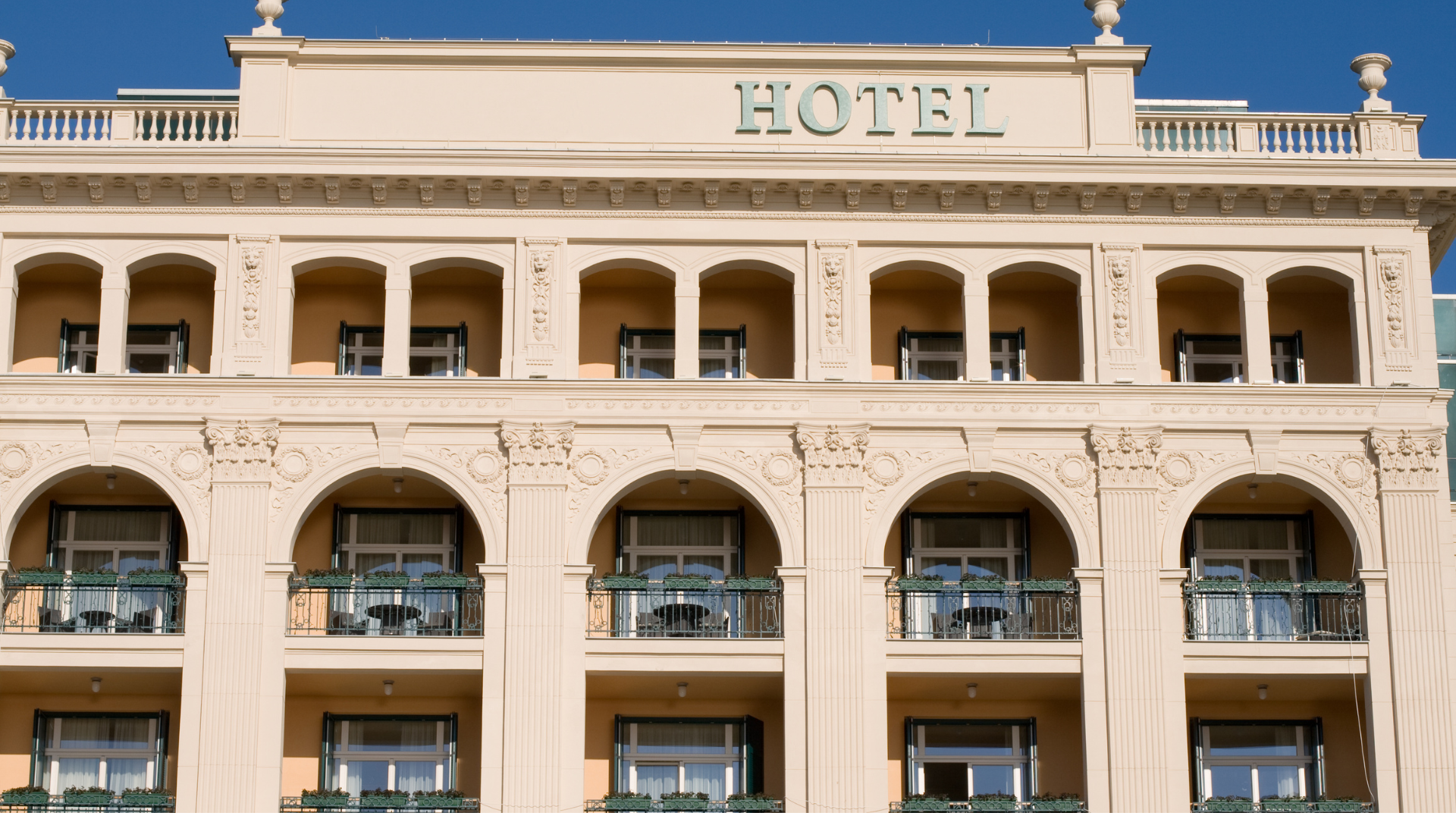Hotel Management
Hotel Ownership
Another way to classify hotels is by their ownership, which can be:
Private - An independent hotel owned by a person, or private enterprise.
Local Group - Hotels owned by a local enterprise
International Group - A hotel which is part of an international chain of hotels
Modes of Hotel Management
Hotels can be operated in one of the following ways:
Independently
By Contract
Referrals
Franchising
1 . Independently Owned and Operated
The term "Independently Owned and Operated" implies that the hotel would be autonomous, with no association with any hotel chains or groups. The hotel would be under the management of the property owners themselves.
This term is often used by small boutique hotels and bed-and-breakfasts that pride themselves on providing a unique and personalized experience for their guests. By being independently owned and operated, these establishments are able to make decisions quickly and efficiently, without having to consult with a corporate office. This allows them to be more flexible and responsive to their guests' needs and preferences. Additionally, independent hotels often have more character and charm than their chain counterparts, as they are able to express their individuality through their decor, amenities, and services. Overall, staying at an independently owned and operated hotel can be a refreshing change from the standardized experience offered by larger hotel chains.
2. Management Contract
Hotel management enterprises that operate properties owned by external entities are referred to as management contracts. In certain instances, property owners opt to have a hotel management company oversee their business via a management contract. This is due to the owners lacking the required expertise or desire to be involved in the day-to-day operations of the hotel.
Advantages and disadvantages of a management contract for Management enterprises.
Management Enterprises
Advantages:
• Receive a management fee during the contract period regardless of the hotel’s performance
• Little or no up-front financing or equity involved
• Management contract period can last for five, ten, or twenty years
Disadvantages:
• Over-dependence on the owner to provide necessary funds for operations
• Minimum input in ownership decisions, such as the transfer of hotel ownership from the owner to another buyer
• No extra rewards for good business performance if the management contract is run in a fee structure without any incentive schemes
Advantages and disadvantages of a management contract for hotel owners.
Hotel Owners
Advantages:
• Acquisition of operational expertise which can reduce the chance of business failure and enhance the service quality
• Gain national or international recognition for the hotel if it is operated by a reputable management enterprise
• The owners are not required to be involved in the hotel’s operations
Disadvantages:
• Lost of operational control
• Financially liable for all costs, expenses, and losses of the hotel
• The management enterprise may have less incentive and morale in managing the hotel if only a fixed management fee is paid without sharing profits.
3. Franchising
Some investors prefer to use the franchising concept in running the hotel. Franchising in the hospitality industry is a concept that:
Allows interested investors to use an enterprise’s (the franchisor) name and business format
Is made up of properties where the franchisees agree to run the hotel in accordance with the strict guidelines set by the franchisor
Allows an enterprise to expand more rapidly by using others’ capital
Advantages and disadvantages of franchising for franchisees.
Franchises
Advantages:
• Obtain expertise from the franchisors in doing business
• Acquire a brand name with regional or national recognition
• The franchisee has complete control and responsibility over the daily operation of the property
Disadvantages:
• Need to follow the standard set by franchisors without modification
• Need to pay a joining fee and an ongoing fee
• Risk of termination of contract or no continuation of a new contract if the franchisor wants to take back the rights of operation
Advantages and disadvantages of franchising for franchisors.
Franchisors
Advantages:
• Receive a joining fee and an ongoing fee from the franchisee
• Expand the business and market share rapidly, without heavy investment
• Lower the risk of business loss by using franchisees’ investment to expand the chains in new locations and markets
Disadvantages:
• Franchisees may fail to follow the standard set by the franchisors
• The trade name can be spoiled by bad franchisees
• The franchisor has to disclose confidential information to franchisees and this may constitute a risk to the business
4. Referrals

The Advantages of Referral Associations for Hotels
Referral associations, like the Leading Hotels of the World (LHW), offer hotels similar benefits to franchising, but at a reduced cost. By becoming a referral property, hotels can operate independently while collaborating with a specific chain. This allows them to refer customers to each other's establishments and share a centralized reservation system, along with a common logo, image, or advertising slogan.
Joining a referral association requires a one-time fee, with additional fees based on the services requested. Since the physical development of the property is already complete, owners may only require assistance with specific services such as advertising, marketing, management, or reservation referrals.
Moreover, guests can appreciate the diversity among referral properties since size and appearance standards are less stringent compared to franchises. Nevertheless, every hotel is regularly assessed and monitored to ensure that they maintain the highest standards.
Classifications of Hotel Departments
Rather than simply organizing hotel structures into departments based on their functions, some hotels employ alternative categorizations. These classifications include:
Revenue-centered and Cost-centered Departments
Front-of-the-house and Back-of-house Departments.
Revenue Centered and Cost Centered Departments

Revenue centers pertain to departments or units that yield direct income to the hotel by providing goods and services to guests. Examples include the front desk, restaurants, room service, gift shop, and business center.
Cost centers, often referred to as support centers, are responsible for the operation and support of revenue centers, without generating any direct income for the hotel. Examples of cost centers include human resources, purchasing, accounting, and engineering departments.
This classification system proves particularly advantageous for the accounts department when evaluating the performance of various units across these two main categories.
By identifying revenue centers and cost centers, hotel management can have a better understanding of where the money is coming from and where it is going. Revenue centers are the lifeblood of a hotel, as they are the ones that generate income directly from guests. They are the ones that guests interact with the most and are responsible for providing excellent customer service. On the other hand, cost centers are just as important, as they are responsible for making sure that revenue centers are operating smoothly. They provide the necessary support and resources to ensure that the hotel is functioning properly. By keeping track of expenses and revenue across these two categories, the accounts department can make informed decisions about where to allocate resources and how to improve the hotel's financial performance.
Front-of-the-House and Back-of-the-House Departments
The term "front-of-the-house" pertains to departments or areas that are immediately visible and accessible to guests, such as front desk counters, restaurants, concierge, and bell services. These areas serve as the points of service encounters where the staff directly interacts with guests.
Back-of-house refers to the functional departments, such as the kitchen, human resources, and engineering departments, that have minimal interaction with guests. However, it's important to note that certain positions within back-of-house departments, such as housekeeping, might have limited interaction with guests.
Next Lesson
Effective day-to-day operations are essential to a hotel's success or failure. Understanding a hotel's structure is crucial to gaining an overview of the organization and its functions. Regardless of size, the organizational structure of a hotel is relatively consistent, typically comprising various departments, each responsible for specific areas of work.


